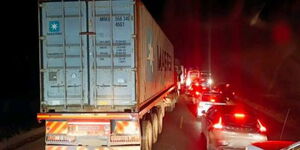Kenya's Nairobi city ranked poorly in a world survey that was conducted to rank countries in the magnitude of honesty.
The research was comprised of 355 cities from 40 countries around the world, Nairobi being one of them.
The research sought to find out whether the amount of money in a lost wallet impacted the likelihood of being returned by the person who found it.
Kenya emerged the fourth most dishonest country in the world with China carrying the award for the most dishonest country in the world followed by Moroccans, Peruvians, and Kazakhstanis in that order.
Reports indicated that the experiment cost Ksh60M and has been unparalleled in its magnitude, according to Agence France Presse(AFP).
In the survey, the researchers dropped off more than 17,000 identical wallets at banks, cultural establishments like theatres and museums, post offices, hotels, and police stations or courts of law.
Each wallet contained a grocery list, a key, and three business cards in the local language using fictitious but commonplace male names and an email address, highlighting the owner was a local resident.
The contents of the wallets varied widely with some containing an equivalent of Ksh1,345 for purchasing power in the target country while others contained no money.
The wallet would then be placed on the counter by a research assistant, who would deliver it to an employee telling them they had found it on the street but were in a hurry and had to go.
An overall finding of the study was that most respondents returned wallets that contained more money.
However, Kenya and China ranked poorly in the survey as most respondents did not return the wallets, especially those with money.
Switzerland, Norway, Netherlands, and Danmark emerged as the most honest countries respectively.












